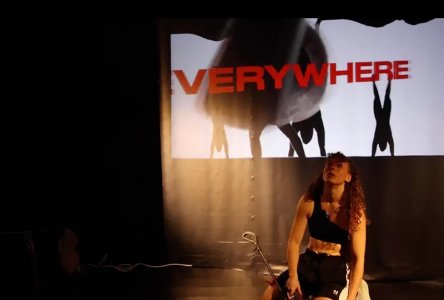
BLOOM
BLOOM, Sydney Theatre Company at the Roslyn Packer Theatre, 2 April-11 May 2025. Photography by Daniel Boud
Arriving in Sydney after its premiere season for Melbourne Theatre Company in 2023, Bloom has expectations in its baggage. It's directed by Dean Bryant and its creator Tom Gleisner is a legend in sharp-edged, satirical, docu-dramedy all the way back to Frontline, and as recently as Utopia. Although both are TV series, there is a clear connection between them and Bloom.
Utopia is a wicked satire about very serious but ultimately ridiculous public servants and pollies. It’s so outrageously realistic as to be more doco than comedy, and the same could be said of Bloom. This time the setting is Pine Grove, an aged care facility, or as Dame Edna had it: a maximum-security twilight home for the permanently bewildered.
Despite its pastoral name, Pine Grove closely resembles the latter as its manager, Mrs MacIntyre (Christie Whelan Brown) keeps the inmates under lock and key. This is for economic and convenience reasons. It’s chronically under-staffed, under-budgeted, and altogether less appealing than a state correctional facility. And then there’s the music.
Most inmates of these places are subject to Andre Rieu or wartime sing-alongs with Vera Lynn or Little Patty, but at Pine Grove they’re actually in a musical and singing the songs too. With book and lyrics by Gleisner, the fare is witty and apposite, but the music by Katie Weston is as blandly generic as tapioca. As most recently arrived and thoroughly pissed off inmate Rose (Evelyn Krape) comments, this is “life without parole”.

The cast is divided between inmates and staff including Finn (Slone Sudiro), an entitled uni student who’s been booted from his share house for rent arrears and takes up a “job” of ”light duties” in return for board and lodging. One care worker, Gloria (Christine O’Neill), thinks this is a great idea, the other, Ruby (Vidya Makan) does not.
The inmates are a cross-section of society. There’s Doug, the tradie who’s had a mild stroke (John Waters), his unlikely but inevitable love interest, middle-class artist Lesley (Jackie Rees); Betty the klepto on a mobility scooter (Maria Mercedes), Roland the thespian (John O’May), waiting eternally for his cue, and deeply medicated and voiceless Sal (Eddie Muliaumaseali’i). He is also burdened with a selection of bad wigs and other gear to play the facility inspector, a reporter, and Trev, which is too much. Nevertheless, Charlotte Lane’s costumes, across the company, work well and clearly signal each character from scrubs to shabby to chic.
The same can be said for Dann Barber’s set and Amelia Lever-Davidson’s wickedly institutional lighting. As with the illumination, institutional barren is the style, with Eau de Nil for the main paint job. It’s cruel yet practical and for anyone who’s had the misfortune to visit such a place, all too familiar.
In comedy, clichés can work well and be absolutely bang on target (the brilliant Utopia is an example), but in Bloom – not so much. With the exception of Evelyn Krape’s sustained, 3-D performance as Rose, the characters are two-dimensional if not caricature, and although the fine company does its best, it’s hard to relate as they lie flat on the page. The exception is Mrs MacIntyre who is an entirely wild parody and the glorious Whelan Browne seems at sea and miscast.

At an hour and 45 minutes straight through – putting a strain on most incontinence pads – there’s simultaneously too much and not enough of the characters to see beyond the superficial. With a couple of exceptions, the songs don’t help and it would possibly be a much more effective dramedy if they were dropped. The subject is screamingly of the present and outside earnest ABC docos or terrifying 4 Corners programs, not much attention is paid to the growing cohort of whom there is much to be said.
In the evening's most poignant truth, a care worker says of her charges, that it’s, “The gap between who they are and who they used to be.’’ The reality, and the tragedy. That there is comedy (must be comedy) in the saddest life circumstances is proved by Ricky Gervais’s After Life. There are moments when Bloom teeters on the edge of that kind of aching, bitter-sweet candour, but the songs intrude. Try imagining The Best Exotic Marigold Hotel with ballads and belters – Judi Dench might have survived Cats, just, but probably not warbling in Jaipur.
Nonetheless, on opening night, there was much laughter and audients bawling their eyes out – perhaps for dumping Nan or Pops in a Pine Grove – but feeling sad for an opportunity missed was also in the air.
Comments
Leave a Comment
Enter your username and password to comment. Don't have a username? Register now.

-c444x300.jpeg)


Be the first to leave a comment below